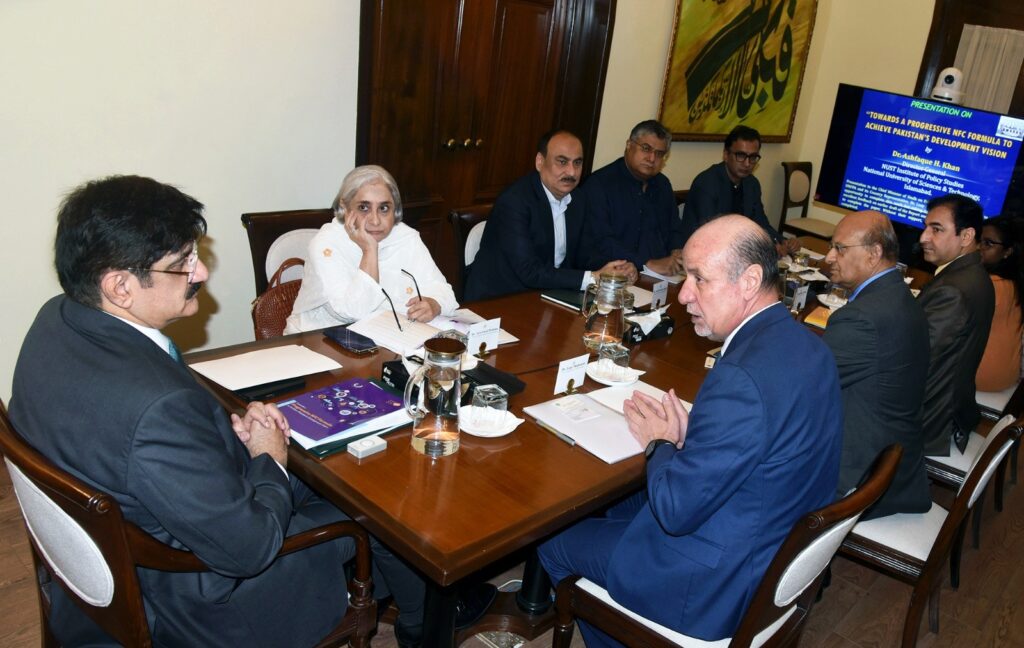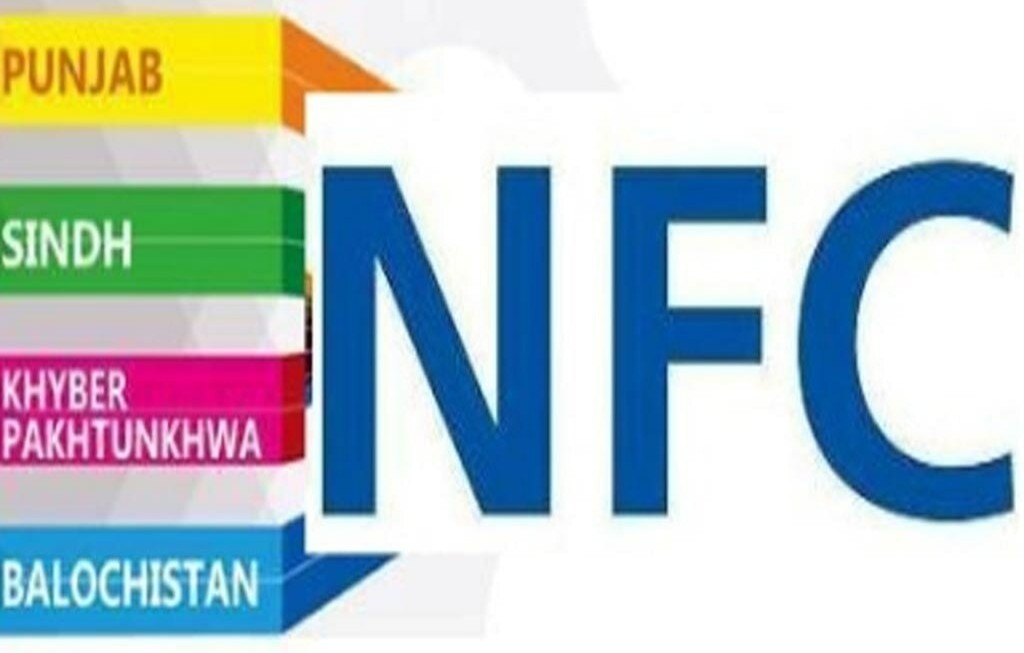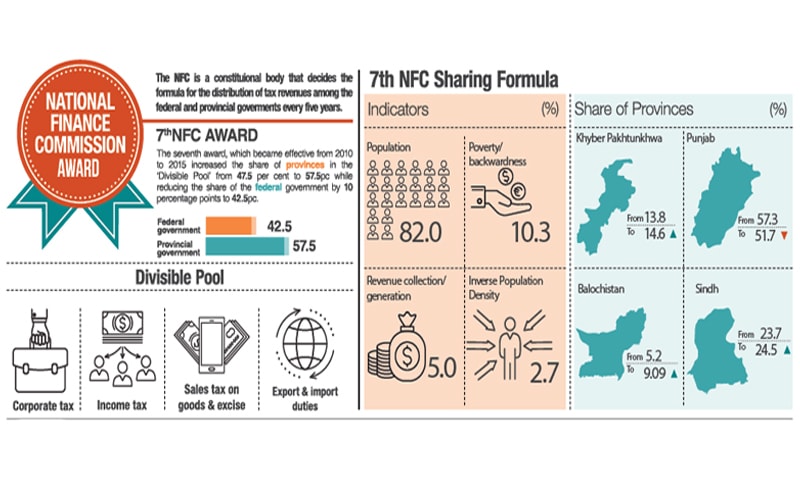The discussion focused on incorporating
multiple factors such as income disparity
for a fairer distribution of financial resources
Staff Reporter

Karachi: Sindh Chief Minister Syed Murad Ali Shah met with a delegation from the United Nations Fund for Population Activities (UNFPA), led by its Country Representative, Dr. Luay Shabaneh, to discuss the reform of the National Finance Commission (NFC) award formula. The discussion focused on incorporating multiple factors such as income disparity, demographic performance, human development, tax efforts, and forest cover for a fairer distribution of financial resources.
The meeting, held at the CM House, was attended by Health and Population Minister Dr. Azar Fazal, Secretary to the Chief Minister Raheem Shaikh, and Secretary for Population Hafizullah Abbasi. Dr. Ashfaq Khan, Director General of NUST, UNFPA Sindh head Muqaddar, and Program Analyst Renuka Swami were also present.

Equitable Resource Distribution for Sustainable Growth
The chief minister emphasized the importance of adopting a multi-factor approach to resource allocation under the 7th NFC Award. He explained that the Pakistan People’s Party (PPP) has long advocated for provinces to have full authority over sales tax collection, enabling more efficient tax collection and improving revenue generation.
Currently, 90% of taxes in Pakistan are collected at the federal level, with provinces responsible for just 10%. CM Murad Ali Shah argued that granting full financial autonomy to provinces would not only boost tax collection but also promote a more equitable distribution of resources.

Overview of the National Finance Commission (NFC)
Dr. Ashfaque Khan, Director General of the NUST Institute of Policy Studies, provided a comprehensive overview of the NFC, highlighting the need for a reformed approach to fiscal allocation. The NFC, established under Pakistan’s Constitution, is tasked with distributing tax revenue between federal and provincial governments every five years.
Historically, Pakistan’s revenue-sharing framework was heavily reliant on population size, but the 7th NFC Award marked a significant shift. For the first time, multiple criteria, including poverty levels and revenue generation, were incorporated into the formula, reducing the weight of population size from 100% to 82%.
Challenges and International Comparisons
The discussion also compared Pakistan’s resource allocation system with international models, notably India’s Finance Commission. India’s approach, which includes demographic performance in financial distribution, has helped incentivize population control among states. Dr. Khan suggested that Pakistan adopt similar best practices while addressing the country’s unique challenges.
However, Dr. Khan pointed out that Pakistan’s NFC structure has been politicized, resulting in manipulated census data and making population growth rates politically sensitive. A reformed, data-driven approach was proposed to ensure fair and transparent distribution.

Proposed Criteria for Horizontal Distribution
The delegation proposed a reformed NFC formula with weighted criteria for horizontal distribution among provinces. The suggested parameters included:
- Income Gap: 30%
- Population (2023): 10%
- Demographic Performance: 17.5%
- Human Development Index (HDI): 10%
- Area: 7.5%
- Tax Effort: 5%
- Forest Cover: 5%
These reforms aim to create a balanced, growth-oriented approach for equitable financial distribution, ensuring long-term sustainable development for all provinces.























